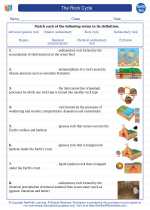Geography Study Guide
Geography is the study of the Earth's landscapes, environments, and the relationships between people and their environments. It is a diverse field that incorporates both physical and human geography.
Physical Geography
Physical geography focuses on the natural features and processes of the Earth, including landforms, climate, soils, and vegetation. It also involves the study of natural hazards such as earthquakes, volcanoes, and hurricanes.
Human Geography
Human geography examines the relationships between people and their environments, including population distribution, migration patterns, urbanization, and cultural landscapes. It also encompasses the study of economic activities, political systems, and urban and rural development.
Key Concepts in Geography
- Location: The position of a place on the Earth's surface, often described in terms of latitude and longitude.
- Place: The physical and human characteristics of a location, including its landforms, climate, and cultural attributes.
- Region: An area with common characteristics, such as climate, language, or political boundaries.
- Movement: The interconnectedness of places through the movement of people, goods, and ideas.
- Human-Environment Interaction: The ways in which people adapt to and modify their environments.
Tools and Techniques in Geography
Geographers use a variety of tools and techniques to study the Earth, including maps, Geographic Information Systems (GIS), remote sensing, and fieldwork. These tools help geographers analyze spatial patterns and relationships on local, regional, and global scales.
Importance of Geography
Geography is important because it helps us understand the world around us and the interconnectedness of human and natural systems. It also provides insights into environmental issues, sustainable development, and global challenges such as climate change and resource management.
Study Tips for Geography
- Review and practice using maps, atlases, and other geographic tools.
- Understand the basic principles of physical and human geography.
- Stay updated on current events and global issues to understand their geographic implications.
- Engage in fieldwork and outdoor activities to develop a hands-on understanding of geographic concepts.
- Use case studies and real-world examples to illustrate key geographic concepts.
By understanding the principles and applications of geography, you can gain a deeper appreciation for the world and its diverse landscapes, cultures, and environments.
[Geography] Related Worksheets and Study Guides:
.◂Earth Science Worksheets and Study Guides High School. The Rock Cycle
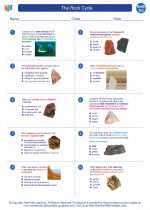
 Worksheet/Answer key
Worksheet/Answer key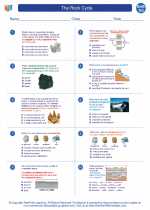
 Worksheet/Answer key
Worksheet/Answer key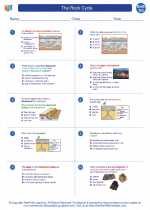
 Worksheet/Answer key
Worksheet/Answer key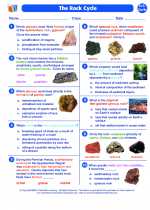
 Vocabulary/Answer key
Vocabulary/Answer key
 Vocabulary/Answer key
Vocabulary/Answer key
 Vocabulary/Answer key
Vocabulary/Answer key